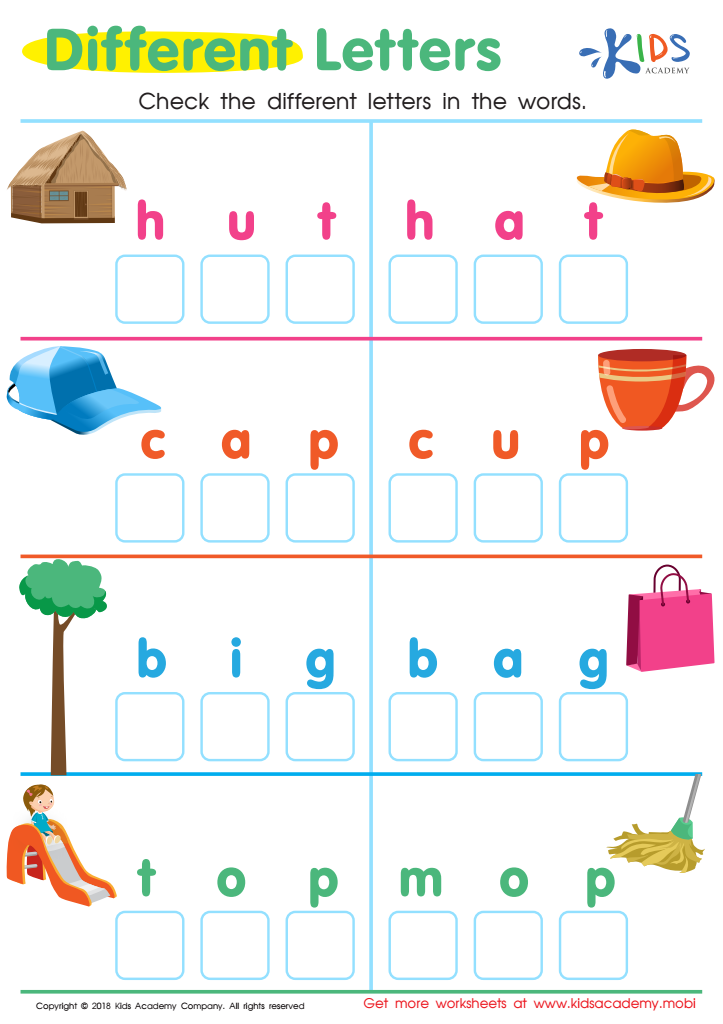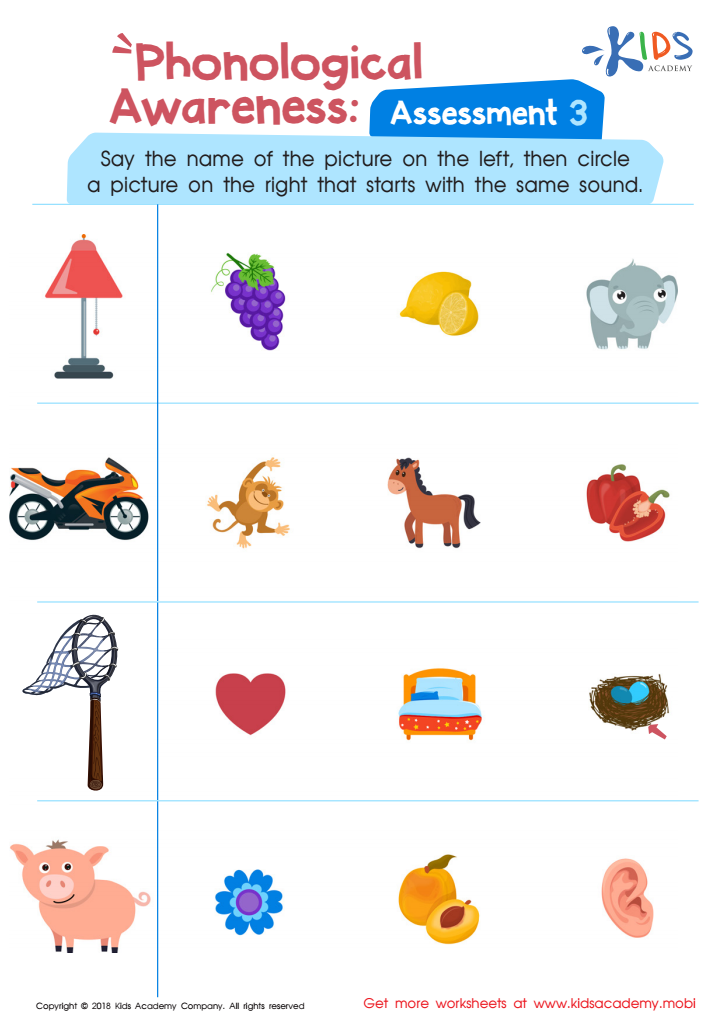Letter recognition Elementary Phonics Worksheets for Ages 3-7
5 filtered results
-
From - To
Discover the perfect resource for young learners with our Letter Recognition Elementary Phonics Worksheets for ages 3-7! Designed to instill foundational reading skills, these engaging and colorful worksheets help kids identify and pronounce letters, fostering early literacy development. Offering a variety of fun activities, these worksheets cater to different learning styles while keeping little minds entertained. Ideal for classrooms or home practice, they build confidence and enthusiasm for reading. Start your child's journey to literacy success with these expertly crafted tools, tailored to support and strengthen their letter recognition skills. Explore now and watch them excel!


Long and Short U Worksheet


Different Letters Reading Worksheet


Phonological Awareness: Assessment 3 Worksheet


Long and Short E Worksheet


Phonological Awareness: Assessment 1 Worksheet
Letter recognition and elementary phonics are crucial building blocks for early literacy among children aged 3-7. Parents and teachers should prioritize these foundational skills because they set the stage for successful reading and writing.
Firstly, letter recognition enables children to identify and understand the letters of the alphabet. This skill is essential because it supports the ability to decode words, which is a fundamental step in learning to read. Children who can easily recognize letters are more likely to grasp phonics rules, the relationship between letters and their sounds, leading to more efficient reading development.
Elementary phonics moves beyond mere recognition, teaching children how to connect letters with speech sounds. Mastery in phonics enhances a child's capability to sound out words, improve their pronunciation, and understand the structures of words. This comprehension fosters confidence and motivation to read, which in turn supports vocabulary growth and comprehension skills.
More importantly, early exposure to letter recognition and phonics has been shown to result in better long-term academic performance. Proficient readers are more likely to enjoy learning and engage in a variety of texts, enhancing their overall learning experience.
By focusing on letter recognition and phonics from an early age, parents and teachers are giving children the tools they need for lifelong literacy and academic success.

 Assign to My Students
Assign to My Students












